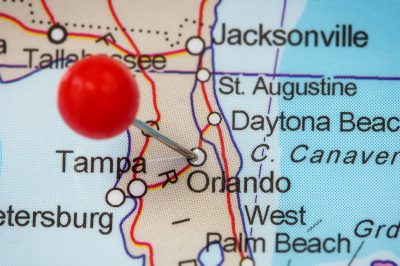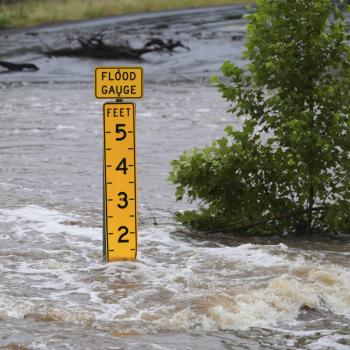The complex history of the Holy Land makes it all but impossible to offer an exhaustive account of the strife and struggles that have roiled that small patch of ground. And it is certainly impossible to do that here.
As the home to all three Abrahamic traditions, it has been contested, over and over again. Given its location in the Fertile Crescent and the Middle East, it has been strategically important for as long as anyone can remember. And, thanks to the hopes and hostilities that have shaped its more recent history, it has never been out of the news. Even the largest and most powerful players on the international stage have found themselves drawn into this vortex.
Those of us wading in on a conversation about what has been happening there are in a difficult position as well. One of the things I am painfully aware of is that the questions we are discussing about the war in Israel and Gaza are viewed from many different vantage points. Some are much closer to the heart of the darkness than others. Most, not all of us, perhaps, are pretty far from its center. To be sure, any of us who are thinking about the situation there and who don’t live in Israel or Gaza can’t be sure of how we would feel if we actually lived there.
Yet, think about it we must. Those of us who believe our faith demands that of us must think about it. Those of us who are blessed to live in a democracy must think about it. Those of us who claim to be educated are obliged to think about it. And the course of events have already forced us to think about it. It is hard not to look at the situation without wondering whether this is act two in a spreading conflict that will one day be described as the beginning of World War III. Let’s hope not.
For myself, watching the tragedy unfold there is deeply shaped by the year that I spent living and working in east Jerusalem as Dean of Saint George’s College and as a Canon of St. George’s Cathedral. My formation as a New Testament scholar touched me in one way. My research dealt with the Gospels, the teaching of Jesus and early Jewish apocalyptic literature. I came to Jerusalem with Jewish friends. I had and still do have a profound respect for the Jewish Scriptures and tradition.
At the same time, I was committed to the well-being of the church in Jerusalem and the Holy Land. I worked in two, closely related Anglican institutions. Apart from a few ex-patriots, my closest friends and colleagues were Palestinians. The Cathedral at St. George’s had a large Arabic speaking congregation. And the man I respected most and still do, was the Canon Pastor of that congregation, who is also a Palestinian. He and his wife remain dear and valued friends.
That place in the scheme of things left me at odds with a good deal that I heard from the extremes on both sides. The more bald, simplistic stories told were riddled with gaps in the historical accounts that they offered. Both Jews and Palestinians laid exclusive claim to the same land. They both argued that they were either there first or had been there longer. And they both relied on mythologies about that history that would have embarrassed a Scotsman.
I knew enough of the history, both ancient and modern to know that such claims were impossible to defend. No one on the face of the earth is ever truly the “native” people of any land, the Holy Land included. And even if those native people existed, they don’t exist any longer – not in a way that is actionable. The recent conceit that we can unwind history as a key to making moral decisions is an unworkable strategy for parsing modern challenges.
If there is a moment in history that explains the current conflict to some degree, it the British Mandate and the decision by the once mighty British Empire to throw both groups of people together in the same small place. And it is from that moment in history that the conflict has spiraled.
Now, however, after what one might describe as an uneasy peace that has lasted for roughly 15 years, a new and devastating dynamic is at work. And there can be no doubt about where the blame for initiating the violence lies. Hamas is a genocidal death cult and is behind the attacks of October 7. They have left Israelis with no choice but to take control over Gaza to drive out Hamas.
Hamas has been explicit about their goals. They have publicly acknowledged that they abused the trust that the Palestinian residents of Gaza placed in them. They spent both the considerable time and money that they had at their disposal to launch this attack, instead of caring for the needs of Gazans. They did nothing that one might have expected to build a safe or just society. So, any rhetoric that they use to that effect is insincere to say the least.
Nor does what happened earlier this month have anything to do with the needs of the Palestinian people or the rights of Palestinians to self-determination. It has everything to do with the goals of Iran and – along with both Hamas and Hezbollah – their shared goal of upending any agreement between Israel and its neighbors to improve relations.
So, Israel will need to do what it can to eliminate the threat that Hamas poses, while trying to do what they can to ensure the well-being of innocents living in the Gaza Strip. That will not be easy since Hamas not only does not care about their well-being but uses them.
Where can those of us who can only look on and pray take a stand?
Years ago, I took a trip to Jordan during my time in the Middle East that gives me a starting point. A fellow priest and Palestinian living in Gaza gave me a tour of the city, and we ended it outside a palatial home with a high wall, an iron gate, and a marble plaza. I was sure that my colleague had more in mind than showing me the home of a wealthy Jordanian, and I asked, “Whose home is this?” His response was: The Palestinian Authority’s ambassador to Jordan. He lives like this, while our people live with open sewers in Gaza.”
What conclusion do I derive from that experience?
One, it is important to distinguish between the Palestinian people and Hamas. Though Hamas undoubtedly recruits young Palestinians, the two groups are not one and the same. And the Palestinian community has not enjoyed a democratic forum to select their own leadership.
Two, it is important to remember where and why this most recent crisis began. With a different leadership there will be time to discuss other issues, but right now the problem is addressing a terrorist enterprise that exploits Palestinians and imperils Israelis.
And, three, it is important to say this clearly: Palestinians deserve more from their leaders and not just their political leaders. In a recent post from the Episcopal Diocese of Jerusalem, the Anglican leadership in Israel pressed the false narrative that Israel had bombed one of their hospitals and called for a ceasefire, citing Israeli aggression. It said nothing about the behavior of Hamas or its failure to care for the Palestinian people. It is their spiritual and moral obligation to name that failure. If all that Palestinian religious leadership can do is echo the language of terrorists, there is little hope of change.














